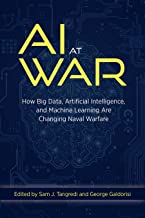
Stanley, The Promethean, Kindle, 2017.
A madcap world filled with madcap characters. A godforsaken English village called Tussock’s Bottom where the favorite drink is a kind of beer affectionately known as Old Stinker. A Christminster (i.e Oxford) Don named Habbakuk McWrath who is an expert on Extreme Celtic Studies and likes nothing better than a good old fashioned brawl of the kind his wild ancestors used to engage in. A British prime minister named Terry Carter, leader of the Conservative Democrats (ConDems, for short). Modelled on a real former prime minister whose name I shall not spell out, he is “a consummate liar and cheap publicity seeker, cravenly addicted to the latest media opinion polls and the number of his ‘likes’ on Facebook and Twitter, perpetually grinning, and with no sincere beliefs about anything except his own importance.” A highly polished French intellectual named Marcel Choux (cabbage) who has declared war on truth—yes, truth—as an instrument of racism, repression, discrimination and a whole series of similar bad things. And who, instead of being sent to the loony bin, is worshipped by the students and faculty of the London School of Politics (aka of Economics and Political Science) who have invited him to receive a prize and give a lecture.
Into this world steps Harry Hockenheimer, a young American billionaire who made his fortune by helping women satisfy their vanity when looking into a mirror. Now 39 years old, happily married to Lulu-Belle who does not make too many demands on him, he has reached the point where he is simply bored with life. Casting around for something significant to do, he hits on the idea of building a robot sufficiently human-like in terms of appearance, behavior and mental abilities to act as a factotum to anyone with the money to buy or rent it. To keep things secret, the decision is made to design and produce the prototype robot not in Hockenheimer’s native California but in Tussock’s Bottom. There he has his assistant set up a high-tech household where everything, from shopping through cleaning to regulating the temperature, is done by computers. At one point Hockenheimer returns to his home away from home only to find that mice, by gnawing on the cables and defecating on them, have turned it in a complete, dirty and smelly, mess. That, however, is a minor glitch soon corrected by a very willing elderly lady armed with a whirlwind of dusters, mops, polishers, sprays, buckets, and similar kinds of mundane, but highly effective, equipment
Approaching completion the robot is christened Frank Meadows, as inoffensive a name as they come. He also goes through a number of tests that highlight his phenomenal memory as well as his ability to remember, articulate and do anything a human can, only much better and much faster. Meadows starts his career by visiting the local pub where he plays darts with his fellow visitors and wins the game hands down. Next he deals with an obnoxious policeman who, having attacked him, ends up in a muddy ditch and is subsequently fired from the force. He takes part in a TV show called A Laugh a Minute whose host, Jason Blunt, “a flabby stupid, greedy, and arrogant exhibitionist with a chip on both shoulders” ends up by physically attacking Frank and, for his pains, is dumped back into his seat like a sack of potatoes. He spends many hours listening to Hockenheimer who does his best to explain to him the way the world works. He… but I will not spoil the story by telling you how it ends. Nor will I let you have the author’s real name and identity; that is something you will have to find out for yourself.
Amidst all this political correctness, inclusionism, identitarianism, and any number of similar modern ideas are mercilessly exposed not just for the nonsense they are but for the way their exponents bully anyone who does not join them. All to the accompaniment of jokes, puns, wordplay and double entendres such as only Brits seem able to come up with. To be sure, Stanley is no Jane Austin and does not even pretend to trace the development of character the way great novelists do. However, almost any page of this book you may pick up will either make you helpless with laughter or, at the very least, bring an ironic smile to your face. Get it and spend a couple of hours—it is not very long—reading it from cover to cover. I promise you you will not be disappointed.




